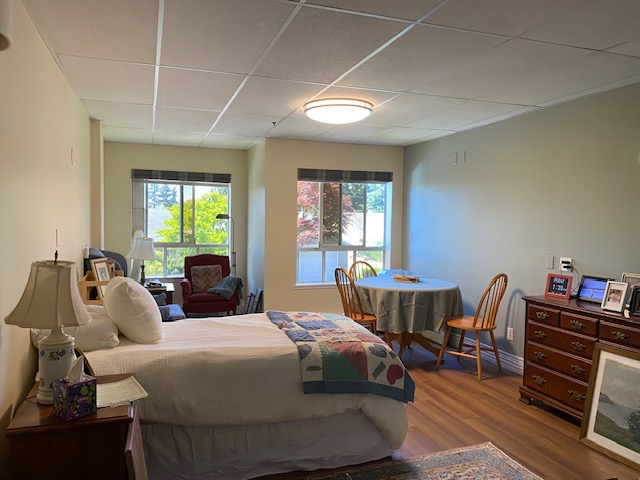I have not been writing lately because my siblings and I recently moved my mother into Memory Care and prepared her home for sale. We saw her early stages of dementia progress though are unsure if she has Alzheimer’s or another form of dementia. We hoped to spare her a spinal tap to determine which form.

What is the Right Thing to Do?
I struggle to make decisions related to loved ones. Can I afford to fly across the country when someone is sick? Can I afford not to? I felt similarly conflicted when thinking about my mother’s dementia and the best care for her.
My father passed away eight months after they moved into their home. Mom has been a widow for a decade this month. She lived ten minutes away from me; the opportunity to visit her and host my mom was a blessing. We held many family events at her home and I have fond memories.
Unexpected Symptoms
Figuring out that Mom’s dementia had progressed took a while because the symptoms were not what we expected. My mom had a fall, became dizzy at the hairdressers, and slumped on a fellow parishioner at church one Sunday. We finally determined that she was no longer preparing meals and eating regularly. Her blood sugar would plummet, causing her to feel faint.
Mom has always been a tentative driver and one step we took after a doctor gave her a cognitive test was to talk with her about giving up the car. If everyone else drove perfectly, she would likely have been fine for a while longer but her questionable ability to react quickly to an unexpected move from another driver concerned us. At first, she was sad about this but then felt relieved later.
The Final Indicator
My brother hired a service called Seniors Helping Seniors. Even though women came daily, spent several hours with Mom, and cooked her meals, we did worry that she was alone so often. She surprised us occasionally. Mom would indicate that she did not remember where my father worked his whole career or fail to recognize her siblings in a photo. She confused relatives, forgetting who was in her generation and who was in the next. On other days, she seemed much better. Mom taught herself about investing by reading the Wall Street Journal daily when we were younger. To find her struggling to write a check was painful.
One day, my brother arrived to find Mom with her arm in the garbage disposal. She was lucky that she did not sever an important blood vessel! She did get an infection, however, and needed antibiotic pills and ointment daily for three weeks as the infection lingered. I was finding it tough to coordinate her needs myself. My husband helped me, but she and I visited the emergency room and urgent care more often in addition to her regular appointments.
Memory Care
My brother, sister-in-law, and I visited seven facilities several months before, anticipating that Mom would not be able to live by herself much longer. We knew a woman who lived at a place in Seattle and she liked it as did we when we toured. Once we decided on a place, I secretly hoped a room would not become available soon. I regretted that my mom would not spend the summer sitting and taking her in her home’s beautiful view. I knew it would be hard for her to leave the house where she spent her last days with my father.

Mom was game to give Memory Care a try. She recognized that we had searched for a good place out of love for her. She believed that moving into Memory Care was a means of reciprocating that love. My mom has been positive throughout the transition. She delights when we visit, take her outside for a walk, to church, to eat, or to watch the Mariners. Her house recently sold and this news saddened her. Much of the time, however, she engages with other residents and seems freer because she does not have to worry about meals, laundry, shopping, or other responsibilities.
Mom lives in the moment and seems happy. At first, she told us that some of the people on her floor did not talk and asked whether we were sure she had been accurately diagnosed with dementia. Recently, however, she asked me to describe the larger facility where she lives. I indicated that it consisted of independent living, assisted living, a floor with skilled nursing, and memory care. When I mentioned that she was in memory care, she said, “Thank God!”
Addressing dementia is not easy even in the early stages. Even though the whole process involved hard work and difficult emotions, I am glad that she went to Memory Care when she could understand why she is there. A relative mentioned that her stepmother pulled the fire alarm when moving into a care facility and needed sedation to get into it. Talk about traumatic!
















